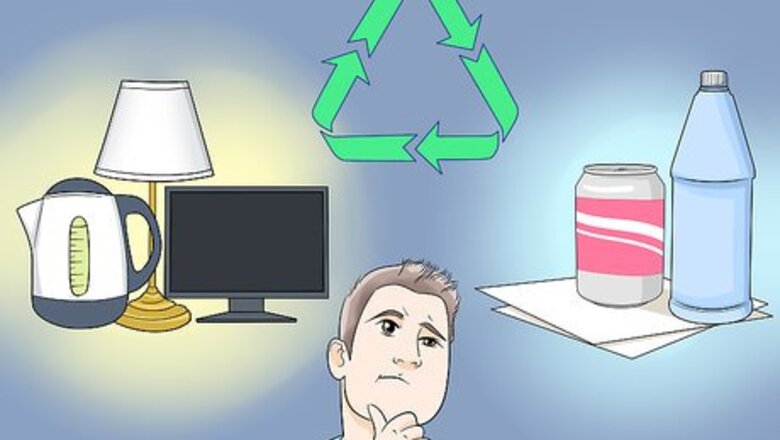
views
Planning for Success
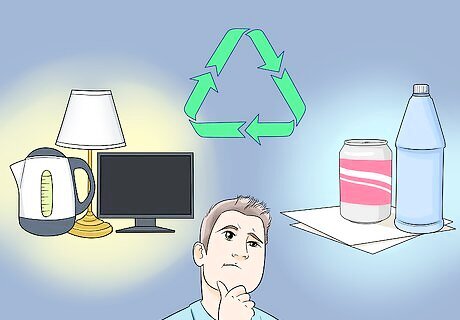
Find your niche. The recycling business is very competitive, and much of the competition is from large, established businesses. In order to be profitable you need to offer a service that is in demand. Because a lot of towns and counties offer recycling pickup services for items like paper and glass, it may be best for you to focus on other materials that are not as easy for people to get rid of. Market research will be absolutely essential! You must investigate what recycling businesses already exist in your area, where you will be able to sell materials and for how much, and how much volume exists in your area. There are many different types of recycling businesses. You could choose to collect and resell household items like furniture and working appliances, collect materials like paper and glass to sell to processing facilities, collect and process recyclable materials into new products, or collect items that are difficult for consumers to get rid of, like broken electronics, and process them to remove the recyclable components. Keep in mind that the commodities market is volatile, which means your profit margins can change very quickly. Depending on the current market conditions, the going rate for materials like metal and paper can change dramatically, which will have a big impact on your bottom line.
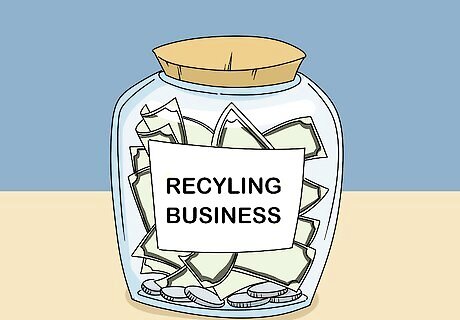
Budget. The amount of money that you will need to start your recycling business will vary greatly depending on what kind of operation you are planning to run. At the very least, you will need to budget for licensing and permits. Keep in mind that if you are quitting your job to start this business, you will need enough money to live on until your business becomes profitable, which may be months or even years. Other expenses might include: Vehicles to haul recyclables A space to store and/or sell recyclables Wages for employees Machinery to process recyclables Money to pay people for their recyclables
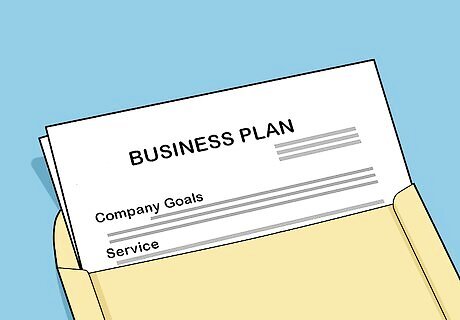
Create a business plan. All of the research that you have done to plan your business will come together in your business plan, which is a formal document that outlines how you will develop and run your business. Your business plan will help you stay on track as you move forward with starting your business, and it will also help potential lenders understand the viability of your business. Your business plan should contain detailed sections on each of the following topics: Your company's goals What products/services you offer and who your target market will be How your business will be structured and managed How you will process materials and/or sell products How much money you will need, what you will need it for, and how much you will need to borrow What will make your business unique from its competition Market analysis, including how much competition you will have and how much demand there is for your services How much money you expect to make How you will market your business
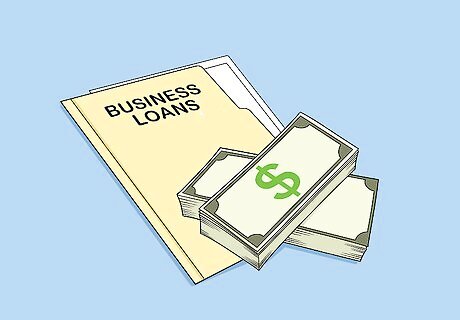
Get the capital you need. Once you determine how much money you will need to start your business, you will need to figure out how to get it. If you need to borrow money, you have several options beyond traditional bank loans. The Small Business Administration is a great resource for startup companies in the United States. Check with the Environmental Protection Agency's Jobs Through Recycling Program to see if they can offer you financial assistance. You may be able to get a loan from your state. Florida, for example, offers special reduced rate loans to entrepreneurs who can increase the state's recycling capacity. The Sustainable Jobs Fund may also be able to offer you assistance if your business will provide jobs in an economically distressed neighborhood. You may qualify for a loan from the Business and Industry Guaranteed Loan Program if your business is in a rural area.
Navigating the Legal Obstacles
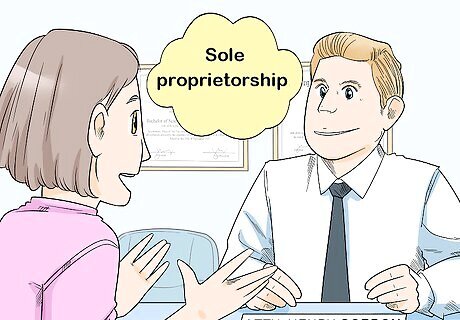
Choose a business structure. When starting a business, you will have several types of business structures to choose from, including sole proprietorship, LLC, and corporation. The right choice for you will depend on the size and scope of your business. In general, sole proprietorships offer the best tax benefits but not protection from personal liability, corporations offer protection from liability but are taxed at the highest rates, and LLCs offer a middle ground between the two. Once you decide which business structure is right for you, contact your state's Secretary of State office to find out what you need to do to apply. The process varies from state to state. Each business type requires the submission of different forms. You may want to hire an attorney to help, especially if you are forming a corporation. It's a good idea to consult with an attorney and/or CPA if you are unsure which business structure is right for you, Make sure to put some thought into your business's name before you file any forms. It needs to be distinguishable from all other businesses registered in your state. You can check with your state's office to find out if the name is available, and with the U.S. Patent and Trademark Office to make sure your desired name has not been trademarked by another business.
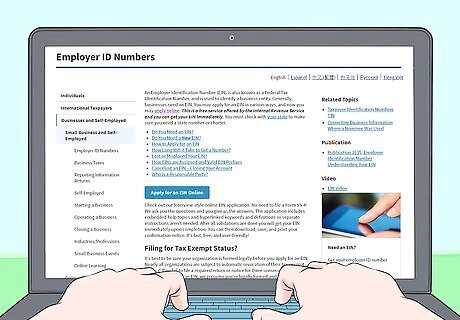
Register with the IRS. In order to operate a business in the United States, you need to register with the IRS to obtain an Employer Identification Number (EIN). You will use this number when you pay your business taxes and when you open a bank account for your business. It is similar to an individual's social security number, but for a business. Applying for an EIN is easy on the IRS's website. You can also submit the application by mail or fax, or even apply over the phone by calling 267-941-1099 (for international applicants only).
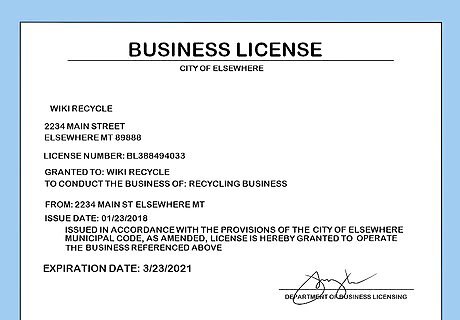
Get a business license. In addition to registering your business with the IRS, you will need to register it with your state in order to obtain a business licence that allows you to legally operate within that state. Each state has different requirements, but a quick internet search should lead you to your state's online business license application. If you are unable to find what you need online, contact your state's Secretary of State office.
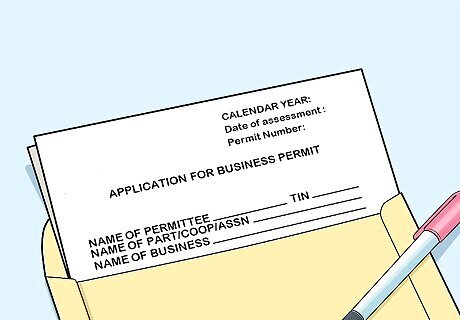
Apply for permits. Just because you have a business license does not mean you are ready to operate your business! Each state also has its own requirements for permits that specific types of businesses need to obtain. The type of permits you need will depend on the type of materials you collect and whether or not you process them or sell them to the public. If you are handling any hazardous materials, such as mercury from electronics, you will need to comply with all state and federal environmental protection laws. Depending on your location and the nature of your recycling business, you may need special permits for environmental concerns like air emissions and waste water. In some states, you will be required to apply for an annual permit and report all of your recovered materials to the Department of Environmental Protection. Check with your state's Department of Transportation to find out what the requirements are for registering your commercial vehicles and whether or not you need any additional permits for your vehicles.
Operating Your Business
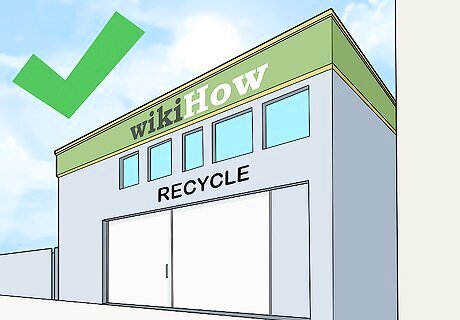
Find a space. If you need a space to store, process, or sell recyclable materials, you will need to buy or lease a building. If you are simply collecting materials and bringing them to a facility for processing, you might be able to use an existing space, like a garage, to get started. Consider zoning restrictions. If you plan on having a physical location where you store or process recycling materials, you will need to make sure that your building is properly zoned for this kind of business. Although it might be ideal to have a central location near the city, residents and/or planning boards are likely to object to having a recycling business near residential areas. Contact your city's zoning commission, planning and development department, or building department for more information about the zoning restrictions in your area. If you need customers to come to your location, either to purchase items or to drop them off, you need to make sure it is a convenient place for people to come. It should be as centrally located as possible and have plenty of parking. You also need to make sure the building is clearly marked so people can find you easily.

Hire employees. Your need for employees will depend on the scope of your business. If you plan on operating a resell store, you will need employees to operate the cash register and assist customers with loading items. If you are collecting recyclables, you will need employees to drive the vehicles and pick up heavy items. If you are processing recyclables, you will need employees to operate your machinery. In addition, you may also want to consider hiring employees to help with things like book keeping and marketing.
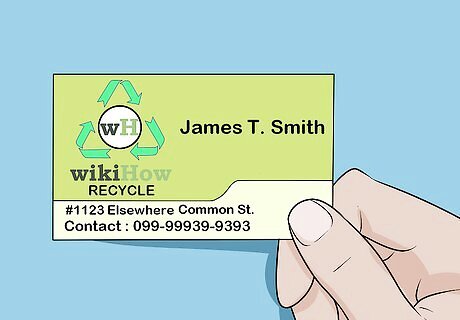
Get the word out. In order to succeed in this business, you will need a steady stream of recyclable materials. Use flyers, business cards, ads, and other marketing materials to let businesses and residents in your community know that you are open for business. Remember that when marketing your business you need to focus on the value that you will be providing to your customer, whether it's top dollar for their materials or the most convenient way to dispose of them. If you will be reselling goods, keep in mind that some of your customers will be consumers who support the green lifestyle and are drawn in by your advertising, while others may just be looking to purchase used products that are in good condition to save money. It is a good idea to advertise to both of these types of customers.

Look for big clients. You may be able to sustain your business with a large number of small customers, but it can give you a big boost of both revenue and credibility if you are able to secure a big customer, like a large office. Even after your business is established, never stop marketing yourself and networking with other business owners.
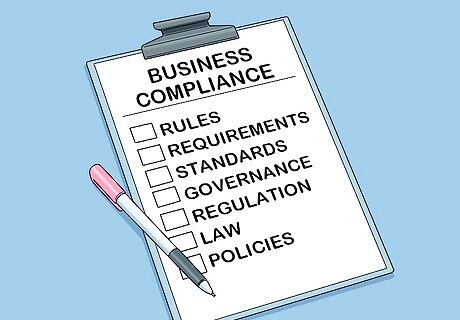
Stay in compliance. Once your business is up and running, it is vital that you follow all of the guidelines imposed by the federal and local government for your specific type of recycling business. Failing to comply with environmental laws can be disastrous for your business. You may want to consider joining trade organizations like The Institute of Scrap Recycling Agencies to help stay on top of the latest environmentally friendly business practices. Certain types of recycling businesses, such as those that deal with used electronics, are routinely inspected by the Occupational Safety and Health Administration (OSHA) to ensure that employees are using the correct equipment and handling procedures. You also need to make sure to meet your obligations for paying both federal and state taxes. Be sure to keep detailed books for tax purposes.




















Comments
0 comment